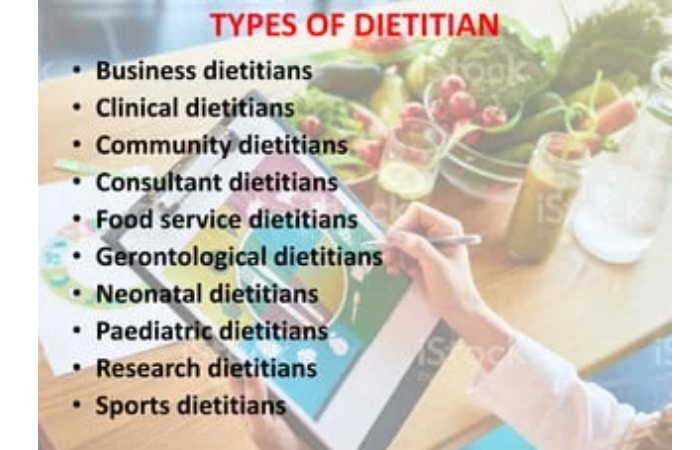Dieticians are experts in how food and nutrition can best be used to promote health or manage a patient’s or client’s illness. A nutritionist will advise you on what to eat to lead a healthier life or to achieve a range of health-related goals such as weight loss, diabetes control, or lowering high blood pressure.

As well as, Nutritionists value the health and habits of their patients. Because They evaluate it along with patients’ health and lifestyle goals. Based on their findings and the patient’s eventual hopes, a nutritionist will make recommendations and offer advice on what the patient should eat or avoid in order to best achieve their goals. And As specialists, nutritionists provide their clients and patients with additional personalized information specifically tailored to their needs and goals. Because Dietitians work with people and clients in clinical settings, including hospitals or long-term care facilities, and in public health settings or in school canteens or prisons. Nutritionists have earned a bachelor’s degree and certification from an ACEND-accredited program.
Table of Contents
Types Of Dieticians

Clinical Dietician
They provide medical, nutritional therapy to patients in settings such as hospitals and nursing homes. They assess patients’ nutritional needs, design and implement nutritional programs, and evaluate and report on the results And They consult with physicians and other health professionals to coordinate medical and dietary needs. Some clinical nutritionists specialize in treating overweight and critically ill patients, e.g., B. Patients with kidney program and diabetes. In addition, clinical nutritionists in nursing homes, small hospitals, or correctional facilities can manage meal services.
Community Dietician
develop disease-preventing and health-promoting nutritional programs that target specific groups of people. Dietitians in this field of practice may work in settings such as public health clinics, fitness studios, workplace wellness programs, or home health care facilities.
Corporate Dietitian
work in food manufacturing, advertising and marketing. In these areas, nutritionists analyze food, create brochures or report on topics such as the nutritional value of recipes, roughage or vitamin supplements.
Dieticians oversee the planning and preparation of large meals in health centers, company canteens, prisons and schools. Because they Hire, train, and mentor other dieticians and hospitality workers; budgeting and buying food, equipment and supplies; enforcement of health and safety standards; and preparation of records and reports.
Also, Dietitians work under contract with health centers or in their own private practice. They carry out nutritional reports for their customers and advise them on nutritional issues such as weight loss or cholesterol reduction. Also, Some work for wellness programs, sports teams, supermarkets, and other nutrition-related businesses. They consult with food service managers and provide expertise in hygiene, safety procedures, menu development, budgeting and planning.
Responsibilities dieticians have in common?
The role of the nutritionist plays an important role in everyone’s life. Because They are responsible for the entire food intake, health development and health progress of a person. Also, They must have a strong sense of duty towards their patients and a strong presence of mind to see what is happening to the patients.
Create healthy and nutritious diets for patients.
Tips for a healthy diet
Monitoring the eating habits and dietary habits of individuals, family members, or both
Create nutrition charts for people with major health concerns
Research on various topics of recovery and progress.
Create a new age diet for the young or health conscious
Accompany the elderly or elderly to change their eating habits
Advise parents and their children about their daily diet and the foods they eat.
Create restrictions on people indulging in junk food
Analyze changes in health habits after recommending changes in diet
Deliver groceries between meals directly to each patient as needed.
Prepare food in accord with safe food handling procedures.
Complete and process service tracking documents and reports as needed.
Prevent loss, breakage and wastage of consumables and equipment.
Understand dietary restrictions and offer patients appropriate options.
Make sure the food is served attractively and appetizingly.
Report difficulties and needs to the supervisor in a timely manner.
Working managers to ensure meal management is correct.
Review meal orders and food allergies received from nursing stations.
Monitor patients on modified diets, tube and supplemental feeding.
Plan and coordinate the use of special diet plans.
Speak with the healthcare team to develop goals related to patient and resident care.
Attend meetings as needed and participate in committees as directed.
As well as, Maintain cleanliness and hygiene to prevent foodborne illnesses in the home.


